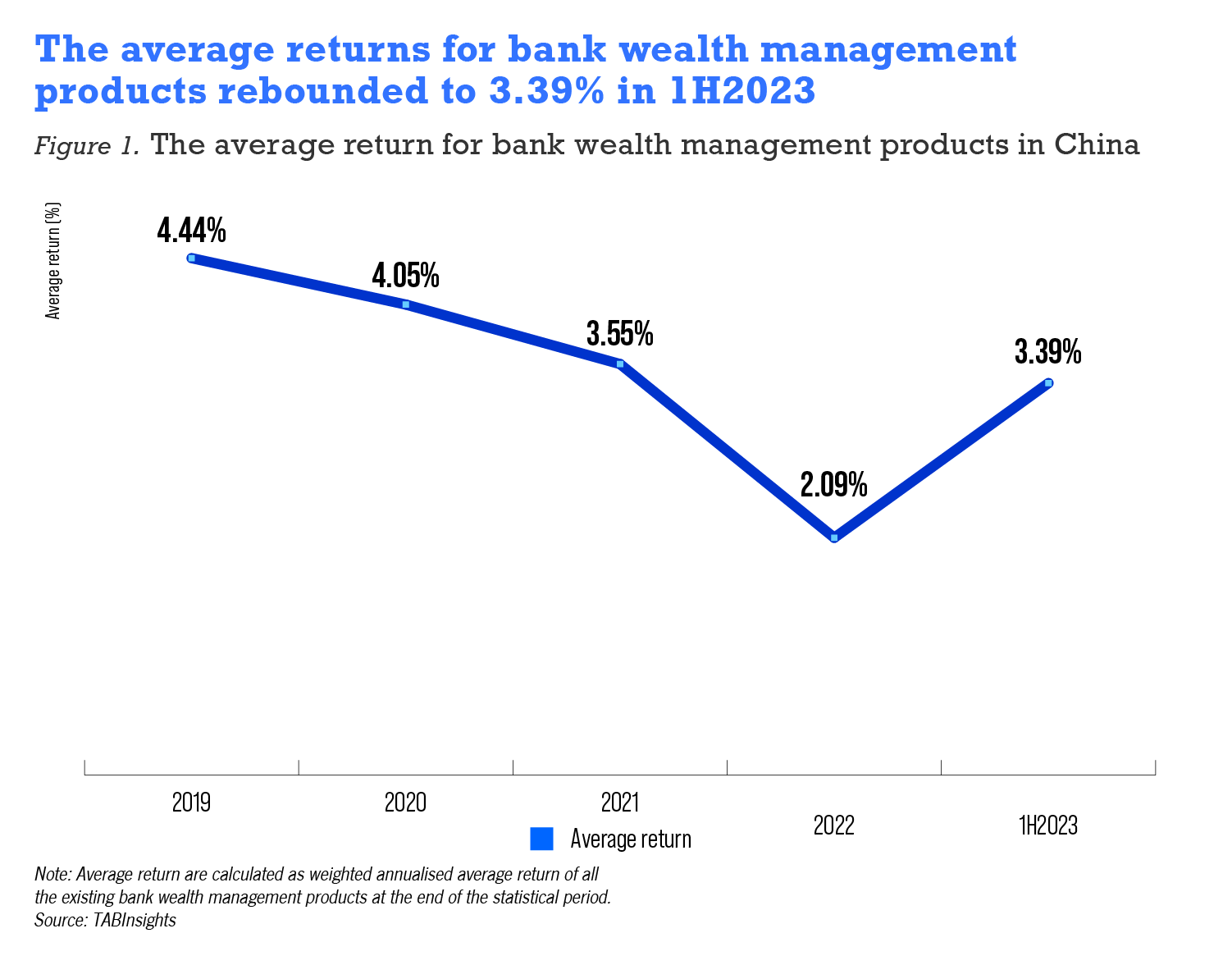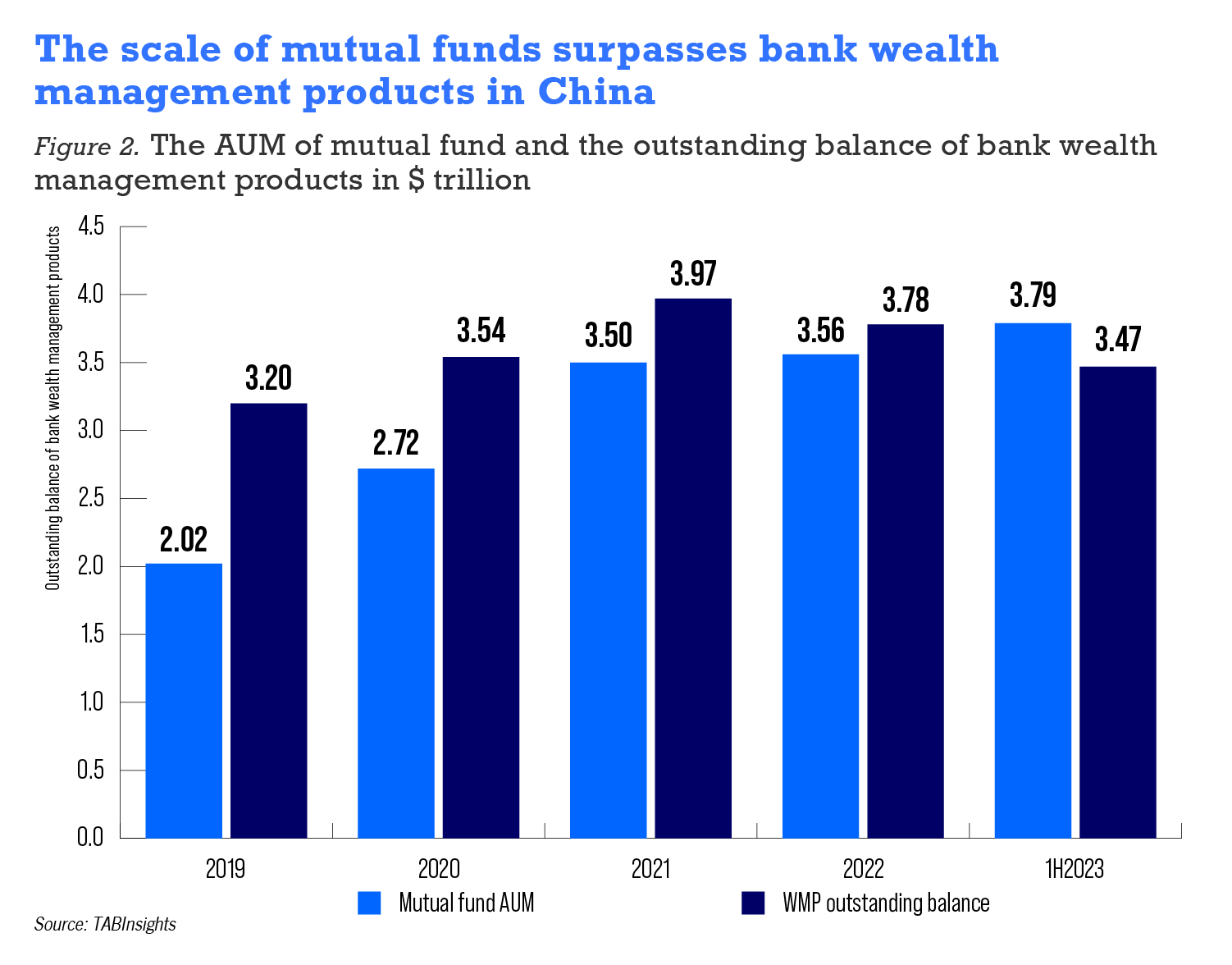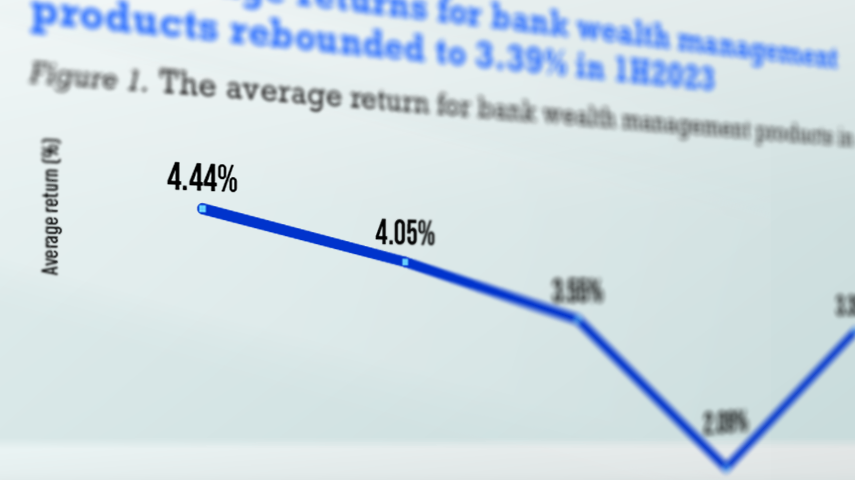• China’s wealth management market faced sell-off amid regulatory transformation
• Signs of recovery as average returns on wealth management rebounded
• Mutual funds surpassing bank wealth management—a watershed moment
The wealth management business of Chinese banks underwent a major transformation in 2022 when wealth management units transitioned to full-scale net asset value (NAV) management under the new asset management rules, a comprehensive regulatory framework that aims to overhaul China’s wealth management industry.
This marked the end of implicit guarantees by issuers to investors of wealth management products (WMP), as all the NAV products must reflect the price changes in the underlying assets.
The transformation was coupled with stock and bond market turmoil in March and November last year that resulted in a notable 23.89% of the NAV wealth management products trading below RMB 1 par.
It triggered panic redemptions among retail investors who were unaccustomed to the fall. In 2022, investor redemptions drove a 4.6% drop in WMP's outstanding balance to $3.78 trillion and historically low average yields of 2.09%.
First half of 2023 showed a glimpse of recovery for bank WMP
Despite these challenges, the August 2023 report by China Wealth (Asset) Management Registry and Custody (WeMac), a statewide WMP information registration system, showed an optimistic shift.

According to the report, two signs showed that the industry is in a slow recovery. Firstly, the proportion of products that are traded below par declined to less than 4% by May, significantly improving from 23.89% in December 2022. Secondly, the average returns on WMP rebounded from 2.09% to 3.39% in the first half of 2023, bolstering investor confidence.
Mutual funds surpass bank WMP as the largest retail investment
WeMac data also showed that the number of WMP investors has reached 1.04 million, increasing 13.41% compared to 2022. However, the outstanding balance of WMP dwindled from RMB 27.65 trillion ($3.78 trillion) at the beginning of 2023 to RMB 25.34 trillion ($3.47 trillion) by June 2023, a 13.1% decrease.
For the same period, the asset under management (AUM) for mutual funds amassed RMB 27.69 trillion ($3.79 trillion), overtaking bank WMP for the first time as the largest investment in the Chinese wealth management market.

China’s mutual fund market has grown rapidly for the past four years. The Investment Company Institute reported that China's regulated open-end funds topped the Asia-Pacific region with $2.66 trillion in 2020, surpassing that of Japan and Australia Post-COVID, the mutual fund industry increased steadily and overtook the dwindling bank WMP market.
The historic shift is propelled by evolving investment preferences, regulatory changes, and China’s economic transition. New asset management rules ended implicit bank guarantees, therefore bank WMP were no longer seeded as a risk-free and high-yield alternative for bank deposits. As Chinese investors diversify, mutual funds and insurance policies will expand.
































